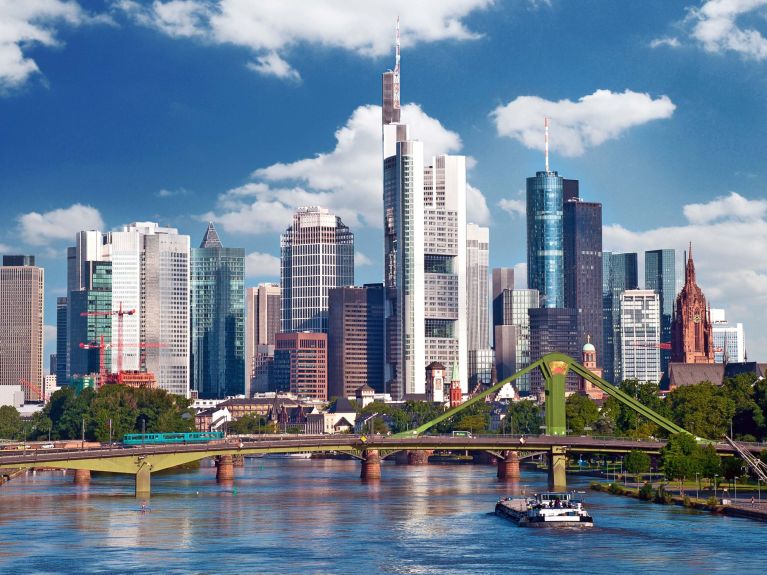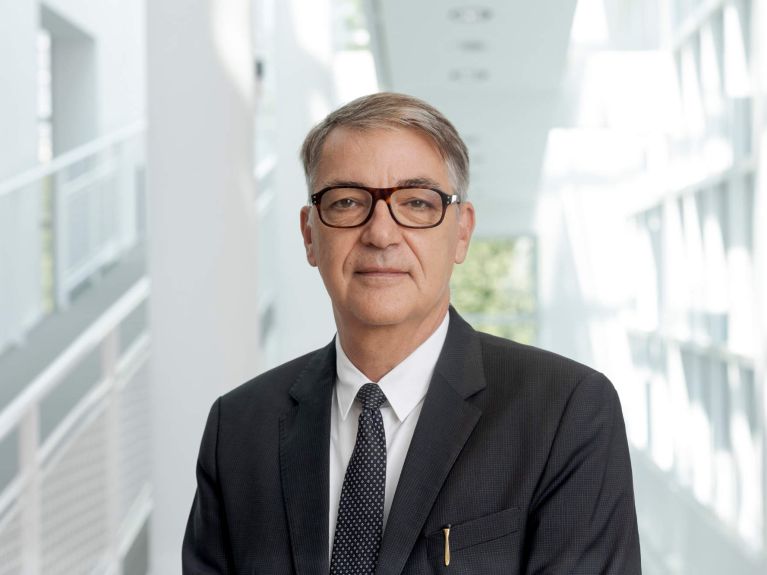“Our aim is to do more to embrace democracy in practice”
Matthias Wagner K, project manager of “Design for Democracy”, explains why design is important for our democracy.

Every two years, the World Design Organisation (WDO) recognises cities that use design to drive economic, social, cultural and ecological development. The 2026 award goes to the Frankfurt RheinMain region. In the final, Professor Matthias Wagner K’s project team beat the competitor from Riyadh (Saudi Arabia). Wagner K is director of the Museum Angewandte Kunst in Frankfurt am Main.

Mr Wagner K, the Frankfurt RheinMain metropolitan region has been awarded the title World Design Capital 2026 with its project idea “Design for Democracy. Atmospheres for a better life.” What is the connection between design and democracy?
We’re delighted and proud to be the first region in Germany to be awarded this title by the WDO. If you look at the history of the region, there have often been far-reaching social changes that have come about through design and applied sciences. 500 years ago, Johannes Gutenberg revolutionised the art of book printing with movable metal type, while Ernst May reformed social housing in the 1920s under the name New Frankfurt – to cite just two examples. It’s important to understand design not just as how we shape what is directly perceptible, but also how we shape social structures and processes.
What signal the project is seeking to send out globally?
The idea is to take the theme “Design for Democracy. Atmospheres for a better life” and promote it all over the world. In 2026 we want to invite people from all countries to join us to discuss sustainability based on practical examples in numerous areas as construction, mobility, public space, consumption and culture. So our motto is also: out of the region, into the region. We want to strengthen democracy in practice and show how people can participate in it. Taking on the challenges of our time, we see design as a tool that can promote peaceful social coexistence.
How important is the “World Design Capital 2026” to Frankfurt and the region, but also to Germany? as a whole?
It’s an international title that is communicated worldwide, so it initially attracts a lot of attention. We hope this will enable us to accelerate the realisation of a wide range of projects and that by involving lots of people we can create a new sense of community in the region. The hope is that our vision will continue beyond 2026, too. The motto “Atmospheres for a better life” is actually a promise for the future: we haven’t achieved a better life yet. This means we have to address numerous challenges such as climate change and the threat to our liberal democracy. If we’re able to use concrete practical examples here in the region to show how good design can help make a difference, that would be a fantastic outcome for the World Design Capital Frankfurt RheinMain 2026.


